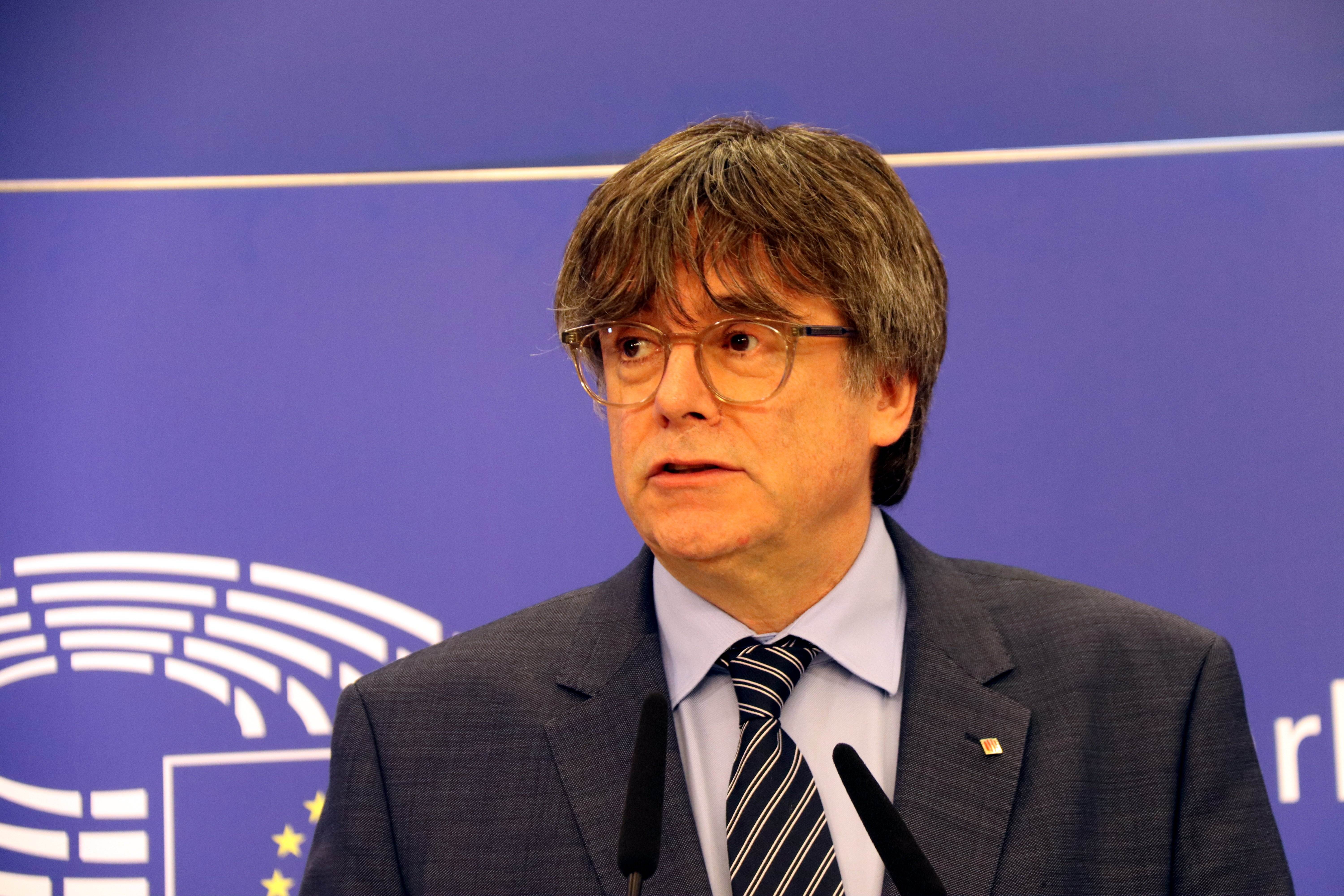The Catalan High Court (TSJC) has again used Catalonia's recent educational legislation to oblige a primary school in Girona to teach one or more subjects in Spanish which "due to their importance in the curriculum as a whole and their teaching load, can be considered as 'main' subjects". This is what Vilaweb published this Wednesday. The application of quotas, in terms of percentages of teaching time, was left out of the new Catalan legislation on language policy in schools, but it does nevertheless define Spanish as "a language of curricular and educational use". With this premise, the TSJC has imposed Spanish in a school and requires the directors of the school to comply with the court order. As the digital newspaper points out, the teaching of one or more subjects in Spanish will affect the child of the family that requested it, and their entire class.
The resolution comes, however, at a time when any news of this kind could represent a setback in the negotiations after the 23rd July election. At a moment when both one side and the other, seek to weave alliances to check whether or not they can seriously opt for a government deal. Specifically, what is on the table is the decisive role which the arithmetic has placed in the hands of Junts and the support that the pro-independence party may or may not be able to give to a Pedro Sánchez government. News stories like this one, however, sow doubts and move negotiating positions apart. And the Catalan president in exile, Carles Puigdemont has now spoken out on the subject, making a critical reflection on the approaches taken with regard to Catalonia's situation up till now.
"They [the Spanish parties and establishment] are in the process of deconstructing social and political consensus [over language policy in Catalonia] for reasons of mere linguistic supremacism, and yet they still ask to be handed more blank cheques because 'the right must be stopped,'" he emphasized via Twitter. "Can you explain to us what they have done all these years to stop the judicial right? What have they done to respect the language policy approved and agreed with the majority of Catalans? They had the votes, they had the key and they had all the power... but the Catalan language is retreating, propelled by the official offensive from the Spanish state. It is not possible to go on repeating this scheme if you want to achieve different results," he said.
Van deconstruint consensos socials i polítics per mer supremacisme lingüístic, i encara demanen que els continuïn estenent xecs en blanc perquè "cal aturar la dreta". Ens poden explicar què han fet tots aquests anys per aturar la dreta judicial? Què han fet per respectar la… https://t.co/OGjRnkIFr0
— krls.eth / Carles Puigdemont (@KRLS) August 2, 2023
Puigdemont rejects blackmail
The tension is more than obvious. The counting of Spanish votes cast abroad, which concluded last Friday, caused the PSOE to lose one seat (121) and the PP to gain one (137) and this has made Together for Catalonia (Junts), the party which the Catalan president-in-exile founded, even more central to a possible investiture of the Socialist leader. In this new context, an abstention by Junts will no longer be sufficient to make Pedro Sánchez president, but rather the Socialists need at least 2 of the Junts MPs to vote in their favour.
Accordingly, Junts are determined to make use of this new-found leverage if they possibly can. And that is why Puigdemont has already released some reflections along these lines. A couple of days ago, he emphasized that "anyone who believes that by exerting pressure or directly practicing political blackmail they will obtain some tactical benefit, can save their effort", also via a Twitter post.
Thus, the current MEP for Junts clarifies that he will not give way to possible blackmail attempts from Madrid. Precisely for this reason, he has stated that since he has been in exile he has already been the subject of "shameful defamation campaigns, of vomitous articles about me and my family". The words were also accompanied by a reflection and also the position of Junts before a possible negotiation with the PSOE, and clarifies that the focus must be on the "political conflict, very serious and deep. Not on people, but on the country".
El recompte definitiu dels vots ha comportat un canvi puntual a l’assignació d’escons al Parlament espanyol però rellevant en l’equació per a qualsevol investidura. L’actual president del Govern i candidat socialista a la reelecció només podrà ser escollit si obté el vot…
— krls.eth / Carles Puigdemont (@KRLS) July 29, 2023
The president-in-exile's three outcomes
In that tweet, Puigdemont also gave his assessment of the three possible outcomes of the Spanish general election: "If six days ago the provisional result already placed us at the centre of conversation and speculation, with the final results in hand the position has become even more confirmed: either Junts votes yes, or the PSOE ends up facilitating the investiture of Feijóo (or that of the candidate that the PP proposes), or we go to a repeat election." That is to say, either an agreement with Junts that allows Pedro Sánchez to form a new government with the bloc of the left, a PP-PSOE coalition of the Spanish establishment headed by Feijóo, or a new election.
The president-in- exile continued: "Not enough time has passed to know what the two major Spanish parties will end up doing - the one that has lost while winning, and the one that has won while losing", referring to the paradox that although the PP finished first on election night, its lack of support from minor parties makes it impossible to forge a coalition, whereas the PSOE's situation is just the opposite. And the former Catalan leader warned: "In similar circumstances [in the past], they preferred to repeat the election. Therefore, it is necessary to maintain discretion and exercise extreme caution."

